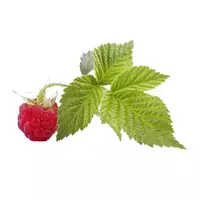Raspberry leaves

Raspberries are considered familiar and even in a sense ordinary berries for most residents of our latitudes. Apparently, the whole point is that the plant is widespread in the territory not only in Russia, but also in neighboring countries. We think everyone knows that there is no better cure for colds than raspberry jam. In addition, fresh raspberry berries can give the human body vitamins of group A, B, C, E, H, as well as PP. In addition, the chemical composition of raspberry berries is enriched with fluorine, molybdenum, potassium, magnesium, calcium, sodium, sulfur, iron and zinc.
However, not only raspberry berries are famous for their unique useful abilities. With competent use, raspberry leaves can be of no less benefit. The beneficial properties of raspberry leaves have been known to mankind since ancient times. We can say that the main benefit of raspberry leaves for the human body lies in the chemical composition of the plant. Raspberry leaves contain a record number of different amino acids, as well as mineral salts and vitamin C.
It is worth noting that the properties of raspberry leaves or Rubus idaeus are used for medicinal purposes. this plant belongs to the Pink family and is a shrub that grows mainly in forests, as well as near natural reservoirs. Common raspberry leaves, as well as plant fruits, are used as an effective means of traditional medicine for colds.
It is believed that raspberry leaves are able to have a general positive effect on human health, and in addition to strengthening the body's immunity. Herbal collections based on raspberry leaves, as well as healing infusions on the attraction of many centuries, are used in folk medicine as a powerful antipyretic. Often, for exceptional abilities, raspberry leaves are called nothing more than "natural aspirin. " Decoction from raspberry leaves not only contributes to a decrease in temperature, but also abundant sweating, which helps in the process of treating colds.
In addition, raspberry leaves are used as an effective means to stop internal bleeding. A decoction or healing infusion of raspberry leaves can also help with digestive problems, as well as with impaired metabolic processes. Such distinctive abilities of raspberry leaves are explained by the presence of tannins, as well as astringent compounds in the plant.
Among other things, raspberry leaves have anti-inflammatory and antitoxic abilities. As a rule, raspberry leaves are harvested and harvested by drying. Infusions and decoctions are prepared from dried raspberry leaves. However, raspberry leaves can be consumed as food and fresh, for example, as part of salads.
raspberry leaves 0.1 kCal
Energy value of raspberry leaves (Ratio of proteins, fats, carbohydrates - ju):
Proteins: 0 g (~ 0 kCal)
Fats: 0 g (~ 0 kCal)
Carbohydrates: 0 g (~ 0 kCal)
Energy ratio (b | y): 0% | 0% | 0%
 Español
Español Français
Français Português
Português Русский
Русский 简体中文
简体中文 繁體中文
繁體中文 日本語
日本語 한국어
한국어 العربية
العربية Türkçe
Türkçe Қазақ
Қазақ Deutsch
Deutsch Italiano
Italiano Українська
Українська
